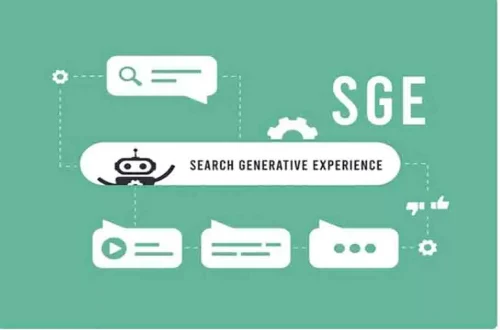In the realm of search engine optimization (SEO), there are numerous technical aspects that often go unnoticed but can have a significant impact on a website’s performance. One such critical factor is orphan pages. These pages, while often overlooked, can quietly hinder your website’s ability to rank well in search results. Understanding what an orphan page is, its implications, and how to address it is essential for improving your SEO strategy.
This blog delves into the world of orphan pages, their impact on your website’s SEO rankings, and actionable tips to fix them. Let’s dive in.
What Is an Orphan Page?
An orphan page is a webpage on your site that lacks internal links pointing to it. In simpler terms, it is a page that exists within your website but is not connected to the rest of your content through internal linking. These pages are isolated, making it difficult for both users and search engine bots to find and crawl them effectively.
While these pages may still be accessible through direct URLs or included in the orphaned pages in sitemap, their lack of connectivity to other pages significantly diminishes their value in the eyes of search engines.
Why Are Orphan Pages Bad for SEO?
The presence of orphan pages raises several SEO concerns. Here are the main reasons why orphan pages SEO can become problematic:
- Poor Crawlability and Indexing
Search engine crawlers rely on internal links to navigate your site. Orphan pages, by definition, are not linked to other pages, making them harder for bots to find. As a result, these pages may remain unindexed or under-indexed, reducing their visibility in search results. - Dilution of Link Equity
Internal linking helps distribute link equity across your website. Orphan pages fail to receive any link equity because they are disconnected, which means they can’t contribute to your site’s overall authority. - Negative User Experience
Orphan pages are often harder for users to find, leading to a fragmented and frustrating browsing experience. This can increase bounce rates and reduce engagement—metrics that indirectly affect SEO rankings. - Content Redundancy
In many cases, orphan pages contain outdated or duplicate content, which can further confuse search engines and lower your site’s ranking. - Wasted Crawl Budget
Search engines allocate a specific crawl budget to your site. Orphan pages may use up this budget without contributing value, leaving other important pages potentially uncrawled.
How Do Orphan Pages Affect SEO Rankings?
The question, “Do orphan pages affect SEO?”, is a common one among website owners. The answer is a resounding yes. While a single orphan page may not derail your rankings, having multiple orphan pages can cumulatively harm your site’s SEO performance. Here’s how:
- Decreased Visibility: Orphan pages are less likely to appear in search results due to their isolation from internal link structures.
- Reduced Authority: Search engines may interpret a website with many orphan pages as poorly managed or less authoritative.
- Ranking Penalties: Search engines prioritize websites with clear, logical link structures. Orphan pages can disrupt this structure, leading to ranking drops.
How to Identify Orphan Pages
Before you can fix orphan pages, you need to identify them. Here are some methods to locate them:
- Use Website Crawling Tools
Tools like Screaming Frog, SEMrush, and Ahrefs can scan your site and highlight pages that are not linked internally. These are your potential orphan pages. - Analyze the Sitemap
Review the orphaned pages in sitemap against your website’s internal linking structure. If a page is in the sitemap but has no internal links, it’s an orphan page. - Examine Analytics Data
Google Analytics can help identify low-traffic pages. These might be orphan pages, as they are less likely to be visited if they lack internal links. - Conduct Manual Audits
While more time-consuming, manually reviewing your site’s structure and content can help you find orphan pages, especially on smaller websites.
How to Fix Orphan Pages
Addressing orphan pages requires a methodical approach. Here are some actionable steps to ensure they are properly integrated into your website:
- Create Internal Links
The most straightforward way to fix orphan pages is to add internal links from relevant, high-traffic pages to these isolated pages. This helps search engines and users navigate to them more easily. - Update the Sitemap
Ensure your sitemap includes all important pages, including those previously identified as orphan pages. Submit the updated sitemap to Google Search Console to expedite indexing. - Consolidate or Delete Irrelevant Pages
If an orphan page contains outdated or duplicate content, consider merging it with a related page or deleting it altogether. Always use 301 redirects for deleted pages to preserve link equity. - Enhance Navigation
Add orphan pages to your website’s main navigation menu, category pages, or footer links. This increases their visibility and accessibility. - Use Contextual Links
Incorporate links to orphan pages within blog posts, guides, or other relevant content. Contextual links are more valuable as they improve user experience and search relevance. - Audit Regularly
Prevent future orphan pages by conducting regular SEO audits. Use automated tools to continuously monitor your website’s internal link structure.
How Orphan Pages Impact Website SEO Ranking
Fixing orphan pages is not just about avoiding penalties; it can actively improve website SEO ranking. Here’s how:
- Boosted Page Authority
Internal linking funnels link equity to orphan pages, helping them rank higher. - Improved Crawl Efficiency
When all pages are interconnected, search engines can crawl your site more effectively, ensuring all content is indexed. - Enhanced User Experience
A well-linked website is easier to navigate, leading to higher engagement and lower bounce rates. - Better Content Utilization
Orphan pages often contain valuable content that can drive traffic when properly linked.
Preventing Orphan Pages in the Future
To avoid dealing with orphan pages repeatedly, implement these best practices:
- Plan a Clear Site Architecture: Design your website with a logical structure that connects all pages.
- Monitor New Content: Every time you publish a new page, ensure it is linked from relevant sections of your site.
- Use Automation Tools: Tools like Yoast SEO can help manage internal linking automatically.
- Educate Your Team: Train your content and development teams on the importance of internal linking and SEO best practices.
Orphan pages may seem like a minor technical issue, but their impact on your website’s SEO can be significant. From reducing crawl efficiency to harming user experience, the downsides of orphan pages are clear. By identifying and addressing these pages, you can not only fix immediate problems but also improve website SEO ranking for the long term.
Addressing orphan pages SEO doesn’t have to be overwhelming. With tools, audits, and consistent monitoring, you can ensure your website’s content remains accessible, valuable, and aligned with search engine best practices. If you’ve been wondering, “Are orphan pages bad for SEO?”, now you know—they are, but with proactive management, you can turn them into an asset.
So, start today. Identify those hidden pages, integrate them into your site, and watch your SEO rankings climb.





